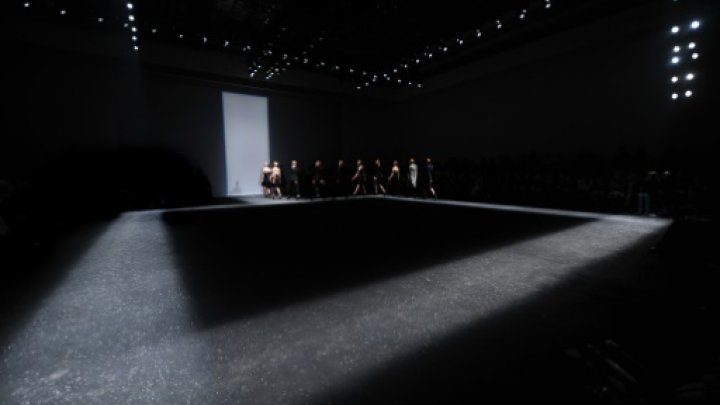
South Africa’s Sindiso Khumalo hopes you like the fact that her clothes are made in Cape Town and “sweatshop free”.
But most of all, the London-based designer hopes you want to buy them because you love wearing the signature graphic prints inspired-by and made in her homeland.
“I think people should buy into my stuff because it is good, not just because it is African,” she told AFP in Milan, where she is one of four designers with roots on the continent showcasing their Spring/Summer 2016 collection during the city’s latest fashion week.
“That is how myself and all of the designers here like to think of ourselves. We are designers first and then we are Africans,” Khumalo says.
“I am a woman, a mother. I’m all of these things.
“But people should buy into my brand because they like the stuff and it is good quality. Bonus that it is African!”
Khumalo is in Milan looking to make contacts and find new buyers thanks to the latest stage of an initiative aimed at forging a mutually-beneficial, non-exploitative connection between the world of high fashion and highly-skilled but often isolated and impoverished craftsmen and women in the developing world.
The Ethical Fashion Initiative, a programme run by the Geneva-based International Trade Centre (ITC), has already helped some 20 top designers including Vivienne Westwood and Stella McCartney to source original textiles, jewellery and other accessories in several African countries and in Haiti.
A joint agency of the United Nations and the World Trade Organization, the ITC also seeks to mentor up-and-coming designers rooted in those countries in a bid to advance its goal of making the global fashion business a little fairer.
– ‘Exquisite work’ –
American-Ghanaian Mimi Plange has already had her designs utilising African-inspired leather quilting and embroidered prints worn by Michelle Obama, Rihanna and Serena Williams.
And she jumped at the chance to join Khumalo, South African menswear designer Laduma Ngxokolo and Senegal-born/New York-raised Sophie Zinga in presenting their work through the long-established Milanese style emporium Biffi Boutique.
“This is an opportunity any designer would kill for,” she said.
Plange says the emergence of a generation of African designers committed to sourcing their materials on the continent can help secure a brighter future for many of the region’s artisans while helping the top end of fashion retain the hand-made quality and meticulous attention to detail that created its special aura.
“All this embroidery and beading and things that are done by hand … it is a lost craft in the Western world now,” Plange said.
“Everybody wants everything really fast and they want it now.
“But when you look at couture and you look at high-end fashion, you see how important it is to have these ateliers with these artisans.
“You can only have that exquisite work when it is done by hand and it is done in a slow way with a lot of meaning and thought.”
Laduma is seeking to boost the profile of his knitwear featuring modern patterns based on the traditional beadwork of South Africa’s Xhosa, a range he initially developed with the aim of selling it to men going through the tribe’s manhood initiation.
“It is about creating brand awareness, getting buyers familiar with my product feel, touch and telling them how it is made and what inspires it,” he told AFP.
– ‘Mountain of African talent’ –
Simone Cipriani, founder and head of the Ethical Fashion Initiative, describes it as a project born of twin desires to “bring authenticity back to fashion and bring work to Africa”.
But this altruistic goal was always founded on a hard-headed business model that is reflected in the attitude of the African designers in Milan this week, he says.
“I saw the ethical-led segment of fashion coming up and saw the segment of responsible fashion coming up. Nobody was in there,” he said.
Other initiatives have followed Ethical Fashion’s lead, but Cipriani believes there is still much more that can be done.
“I would like to have many more people involved in this, many more artisans all over Africa, many more designers.
“I’d like to see the whole fashion sector change. I’m not sure I am going to see that in my life but you have got have an objective and a horizon to work towards.
“There is a mountain of talent in Africa. When I was young, Italy was about creativity and artisans. Today Africa is the same.”
